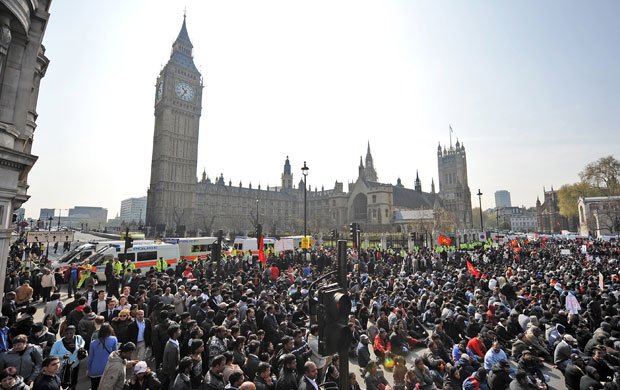Wikileaks
Washington in Africa, 2012: Who will Obama ‘whack’ next?

Graphic from the Economist.
By Patrick Bond
[Address to the Muslim Youth Movement 40th Anniversary Conference, University of KwaZulu-Natal, Durban, September 30, 2012. Posted at Links International Journal of Socialist Renewal with the author's permission.]
At a time when popular revolutions are sweeping the globe, the United States should be strengthening, not weakening, basic rules of law and principles of justice enumerated in the Universal Declaration of Human Rights. But instead of making the world safer, America’s violation of international human rights abets our enemies and alienates our friends. – Former US president Jimmy Carter, 25 June 2012, New York Times
Tariq Ali: Why Ecuador supports Wikileaks and Assange's rights
August 20, 2012 -- GreenLeftTV/Links International Journal of Socialist Renewal -- "Why is it that an Australian, facing prosecution from a European country, decides to appeal for asylum to a South American republic?" Tariq Ali asked and eloquently answered this important question when he spoke outside the embassy of Ecuador in London on August 19, 2012. Ali spoke just before Wikileaks founder Julian Assange addressed the press and supporters from the balcony of the embassy, where he has been granted political asylum by the progressive government of Ecuador.
Ricardo Patiño Aroca: Why Ecuador granted Julian Assange political asylum
Telesur English, August 16, 2012 – The

Bradley Manning supporters at Occupy London, last

Tamils protest in London, April 2009, during the Sri Lankan government's brutal war to crush the Tamil movement for national rights.
By Ron Ridenour
February 20, 2012 – Links International Journal of Socialist Renewal -- Brace yourselves Tamils in and from Sri Lanka! The United Nations Human Rights Council will not grant you justice at its 19th session, on February 27-March 23, 2012 or, perhaps, in any foreseeable future.
Until the past few weeks it looked as though the “international community” (US, UK-Europe, Canada, Australia, Japan), the east (Russia, China, India, Pakistan, Iran), the Middle East-Libya/Africa and the progressive global South (Cuba-ALBA+, South Africa) were content with ignoring Sri Lanka’s war crimes and crimes against humanity.
Photo essay: 11-11-11 -- Veterans for Peace Arlington West Memorial: 8 years and counting

Photos and text by James Rodríguez, Santa Monica, Los Angeles County, California
November 11, 2011 -- Mimundo.org, posted at Links International Journal of Socialist Renewal with James Rodríguez's permission -- The armistice that ended World War I was signed on November 11, 1918. Since then, many allied nations have adopted the date to commemorate members of the armed forces who have served in a war. In the United States, this day is observed as Veterans Day.
This year’s holiday marks the eight anniversary of a unique commemoration carried out by the Los Angeles chapter of Veterans for Peace (VFP) on the sands of world-renowned Santa Monica Beach. Every Sunday since Veterans Day 2003, numerous VFP members and volunteers have erected a temporary and symbolic cemetery aptly named Arlington West Memorial. White crosses represent one fallen Iraq or Afghanistan war veteran, while red crosses represent 10 US servicepeople killed in action in these two wars.
Mauritius, Seychelles: Wikileaks exposes US imperialism's modus operandi

The Seychelles houses a base from where a fleet of
(Updated Oct. 4) Bolivia: Avaaz, NGOs wrong on Morales and Amazon protests; police attack condemned

March in Trinidad, Bolivia, against a proposed highway that would go through part of the Amazon, August 15.
By Federico Fuentes
September 25, 2011 -- Green Left Weekly -- Statements, articles, letters and petitions have been circulating on the internet for the past month calling for an end to the "destruction of the Amazon". The target of these initiatives has not been transnational corporations or the powerful governments that back them, but the government of Bolivia's first Indigenous president, Evo Morales.
At the centre of the debate is the Bolivian government’s controversial proposal to build a highway through the Isiboro Secure National Park and Indigenous Territory (TIPNIS). TIPNIS, which covers more than 1 million hectares of forest, was granted Indigenous territory status by the Morales government in 2009. About 12,000 people from three different Indigenous groups live in 64 communities within TIPNIS.

